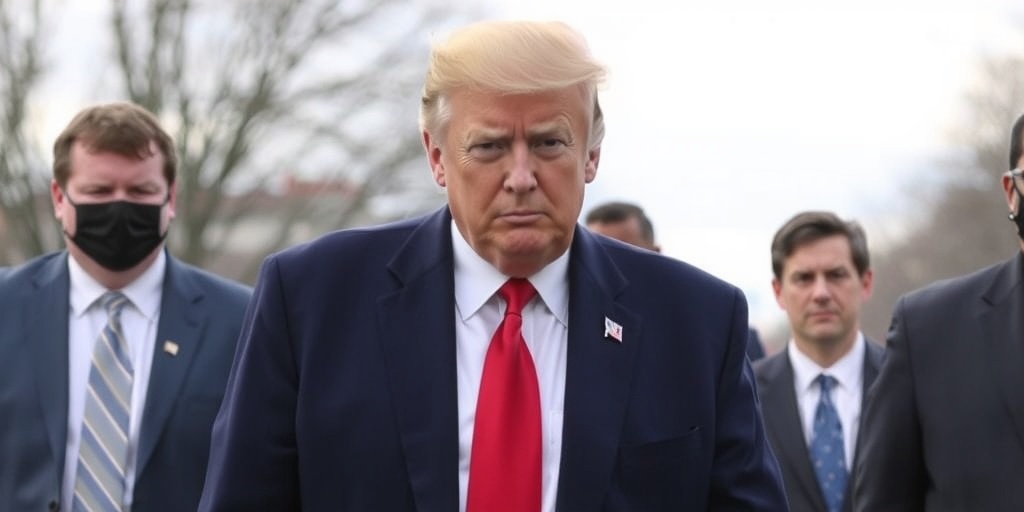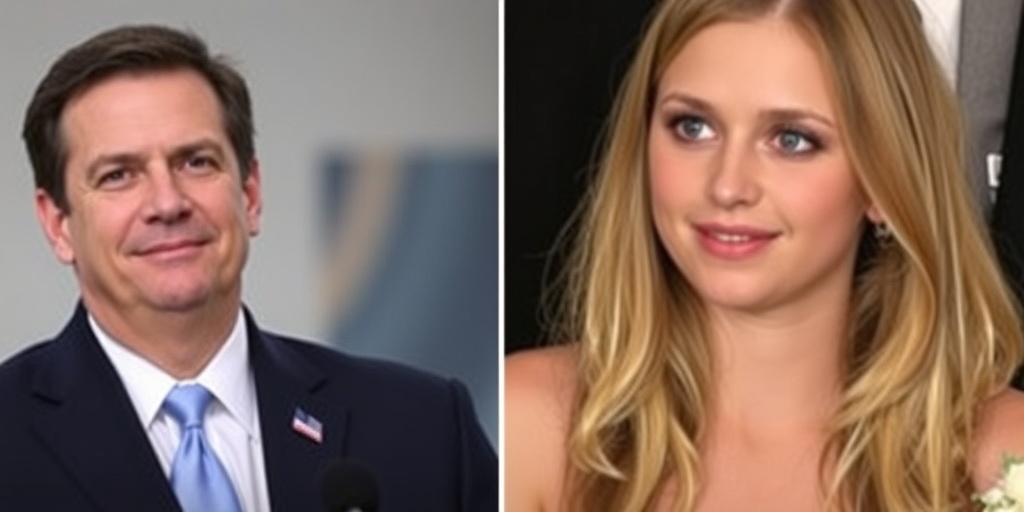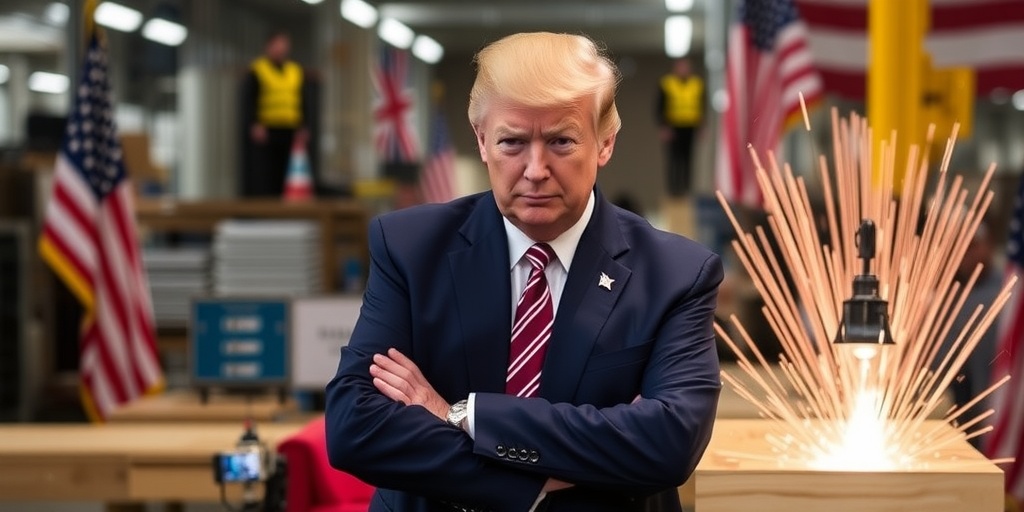Now Reading: Trump’s Tariffs Highlight His Second-Term Risk Appetite
-
01
Trump’s Tariffs Highlight His Second-Term Risk Appetite
Trump’s Tariffs Highlight His Second-Term Risk Appetite

President Trump’s Risky Gamble in His Second Term
Just ten weeks into his presidency, President Donald Trump is already showcasing an aggressive approach, seemingly unfazed by potential economic repercussions. In a surprising move, he unveiled sweeping global tariffs, a decision that has stirred concerns about possible inflation and the specter of stagflation. When confronted with questions about the potential rise in car prices due to these tariffs, Trump responded nonchalantly, “I couldn’t care less,” reflecting his confidence and willingness to embrace risks.
This recent tariff announcement is just one example of Trump’s broader strategy. He has been dismantling an extensive global alliance system that the United States has developed over the past 80 years, operating at the behest of a hard-nosed deal maker persona. Notably, he has taken steps to suppress media outlets like the Voice of America and significantly reduced government involvement in food and medical assistance programs.
Trump’s tactics indicate a readiness to test the limits of American democracy, prioritizing retaliation against perceived adversaries over traditional governance principles. His administration readily jeopardizes public health and disregards legal processes for immigrants in the country, marking a stark departure from previous political norms.
In the face of intense competition with China in fields like artificial intelligence and space exploration, Trump is unafraid to cut off funding to major American research universities. While these institutions represent a pinnacle of American innovation, he views them as bastions of what he terms “radical leftist” ideology—an ideology he is determined to combat.
Members of Trump’s administration downplay the risks associated with abandoning expertise and foundational research, asserting that private sector innovation will fill the void left by reduced federal support. This marks a pivotal shift from Trump’s first term, where he often discussed fiscal responsibility while allowing the federal deficit to expand unchecked. Observers note that voters and business leaders appear supportive of the higher risks he is taking this time around.
When probed about the stark differences in his second term, Trump’s aides suggest that earlier legal constraints and fears of electoral backlash no longer hinder his decision-making. The new cabinet, comprised of staunch supporters and former Fox News commentators, contrasts sharply with earlier advisers who urged caution during his first term.
Now, Trump’s administration operates without the moderating influence of figures like former Secretary of State Rex Tillerson and Defense Secretary Jim Mattis, who once cautioned against actions that might destabilize markets or endanger NATO relations. His team prioritizes a bold approach to economic policy, championed by Treasury Secretary Scott Bessent, who has asserted that inexpensive goods are not essential to the American dream.
Trump seems fully committed to hastening the decline of globalization. His introduction of tariffs represents a calculated gamble, betting that American consumers will accept temporary price hikes as part of a broader strategy to bring jobs back to the United States. This protectionist vision resembles practices from the era of President William McKinley, whom Trump praised during his inauguration.
However, Trump’s strategy involves multiple layers of risk. He anticipates that foreign nations will respond to these tariffs by lowering their own trade barriers, offering the U.S. a new revenue stream that may lessen its reliance on income taxes. Critics argue there is a fundamental contradiction in these goals, highlighting a lack of empirical support for his assertions that higher tariffs will ultimately benefit the American economy.
Matthew P. Goodman, a director at the Council on Foreign Relations, emphasized Trump’s certainty about the outcomes of his policies while cautioning about the potential repercussions on the markets. As economic forecasts become clouded by uncertainty, the pressure mounts on Trump to justify his decisions, particularly as they could lead to significant economic consequences.
In a characteristic display of negotiation, White House Press Secretary Karoline Leavitt suggested that Trump is open to discussions regarding tariff adjustments. This indicates that global leaders may soon engage with him in negotiations, potentially at his Mar-a-Lago resort.
If negative market reactions arise from the tariffs, Trump retains the option to modify them as needed. The tariffs were crafted through a subjective assessment of other nations’ tariffs on U.S. goods, giving Trump considerable flexibility to adjust his approach.
His second term has clearly been characterized by a willingness to utilize the full spectrum of American power to achieve his objectives. Trump is prepared to close agencies like the United States Agency for International Development to further his agenda, demonstrating an urgency that prioritizes economic objectives over long-standing diplomatic alliances.
The implications of this strategy are far-reaching. Trump’s economic diplomacy positions trade as the primary concern, leaving security and diplomatic alliances, such as with NATO and Ukraine, as secondary considerations. He seems to believe that world leaders, including those from China and the European Union, will avoid escalation, fearing the unpredictable actions of his administration.
As Trump’s presidency unfolds, the stakes grow higher, illustrating his determined and often dangerous approach to governance. His ability to navigate these risks while maintaining support from his base and managing international tensions will likely define his legacy in office.
In a climate rife with uncertainty, Trump’s decisions remind us that leadership often entails navigating treacherous waters, where each gamble could yield significant consequences—both domestically and globally.
Stay Informed With the Latest & Most Important News
Previous Post
Next Post
-
 01New technology breakthrough has everyone talking right now
01New technology breakthrough has everyone talking right now -
 02Unbelievable life hack everyone needs to try today
02Unbelievable life hack everyone needs to try today -
 03Fascinating discovery found buried deep beneath the ocean
03Fascinating discovery found buried deep beneath the ocean -
 04Man invents genius device that solves everyday problems
04Man invents genius device that solves everyday problems -
 05Shocking discovery that changes what we know forever
05Shocking discovery that changes what we know forever -
 06Internet goes wild over celebrity’s unexpected fashion choice
06Internet goes wild over celebrity’s unexpected fashion choice -
 07Rare animal sighting stuns scientists and wildlife lovers
07Rare animal sighting stuns scientists and wildlife lovers





















